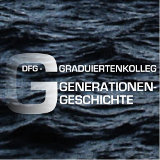Abstract Julia Hauser
To what extent did the structures and sense of mission of a family enterprise, centrally and patriarchally organized but crucially shaped by women's work, undergo changes when transferred to a peripheral environment which was characterized by cultural diversity and colonial as well as missionary competition? In drawing on a genealogical notion of "generation", my project examines this question for the case of the pedagogical activities of the Kaiserswerth deaconesses in Beirut.
From the beginning, there had been a contradiction at the heart of the so-called Kaiserswerth "Orient work", initiated in 1851 by Theodor Fliedner, the "founding father of the deaconessate", in Jerusalem, between a dedication to women's "liberation" and the patriarchal structures of the deaconessate. While at the outset, the mission had idealistically addressed itself to all faiths of the Ottoman Empire, the Syrian massacres of 1860, in the wake of which Kaiserswerth founded a permanent station in Beirut, made the deaconesses focus primarily on Christians with the intention of regenerating society by raising a new generation after catastrophe. However, they could not realize their mission without impediments. Apart from the instructions received from home, the deaconesses' work was influenced by conflicting claims in a religiously heterogeneous locale, a city of growing political, economical, and cultural importance, and a time of increasing Western imperial ambitions. In how far did these circumstances affect the original concept underlying Fliedner's "Orient work", as well as the hierarchical mechanisms of the deaconessate itself? Can the deaconesses" work still be described in terms of a mission of a "long generation"?
From the beginning, the history of the Kaiserswerth deaconessate has been written as a genealogical narrative. While the impact of gender dynamics has been analyzed to some extent for Kaiserswerth's work in Germany, most studies still focus on the administrative workings of the board, thus equating diaconical norms and practice. This project, in contrast, is based on the assumption that an organization's work can only be understood through, and is in fact constituted by the interactions between its board and members of staff. With the combined methodology of microhistory, global history and gender studies it will analyze the rich body of ego-documents in relation to the official records as well as missionary, diplomatic and other sources pertaining to the local context in Beirut.
